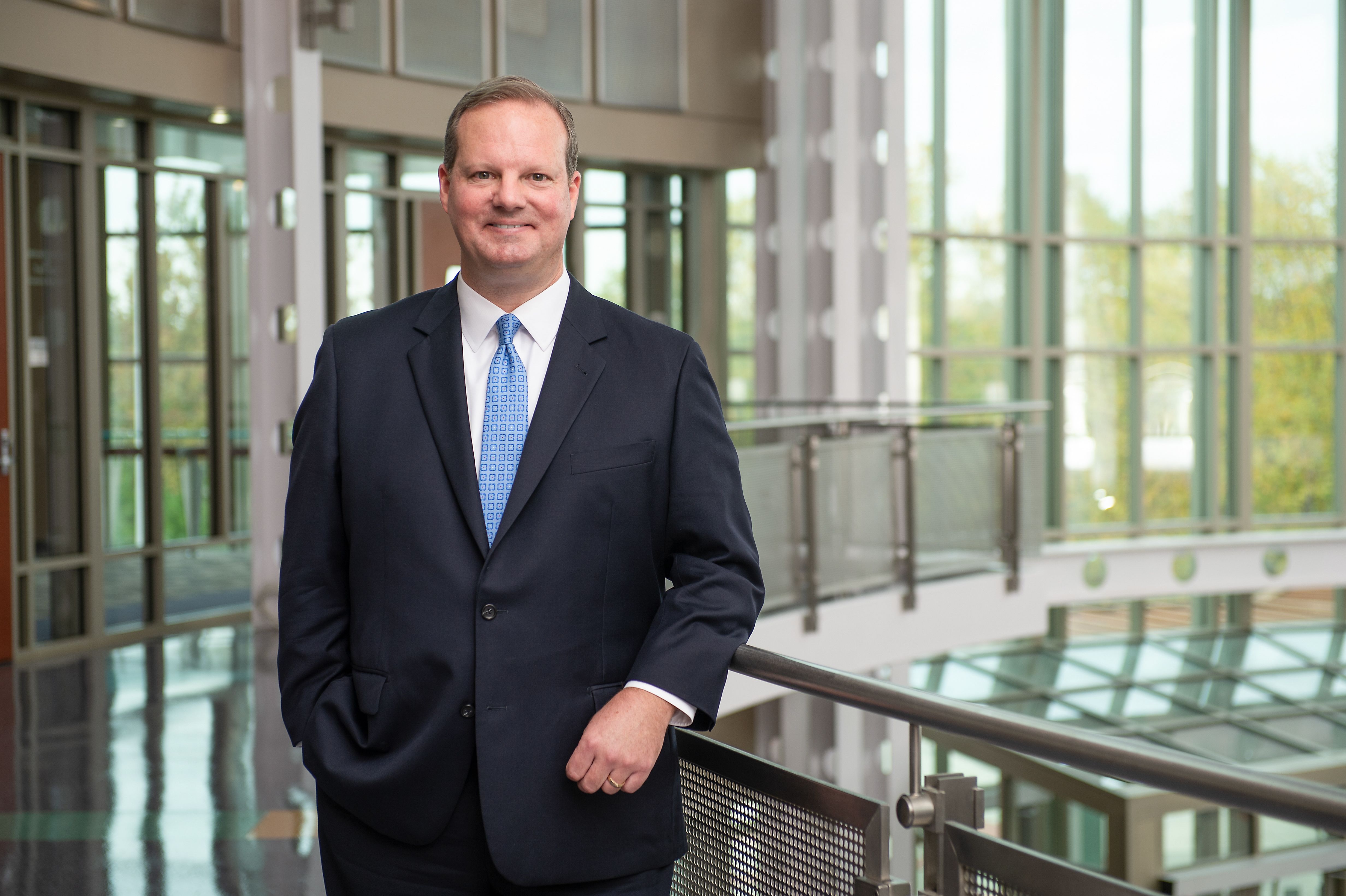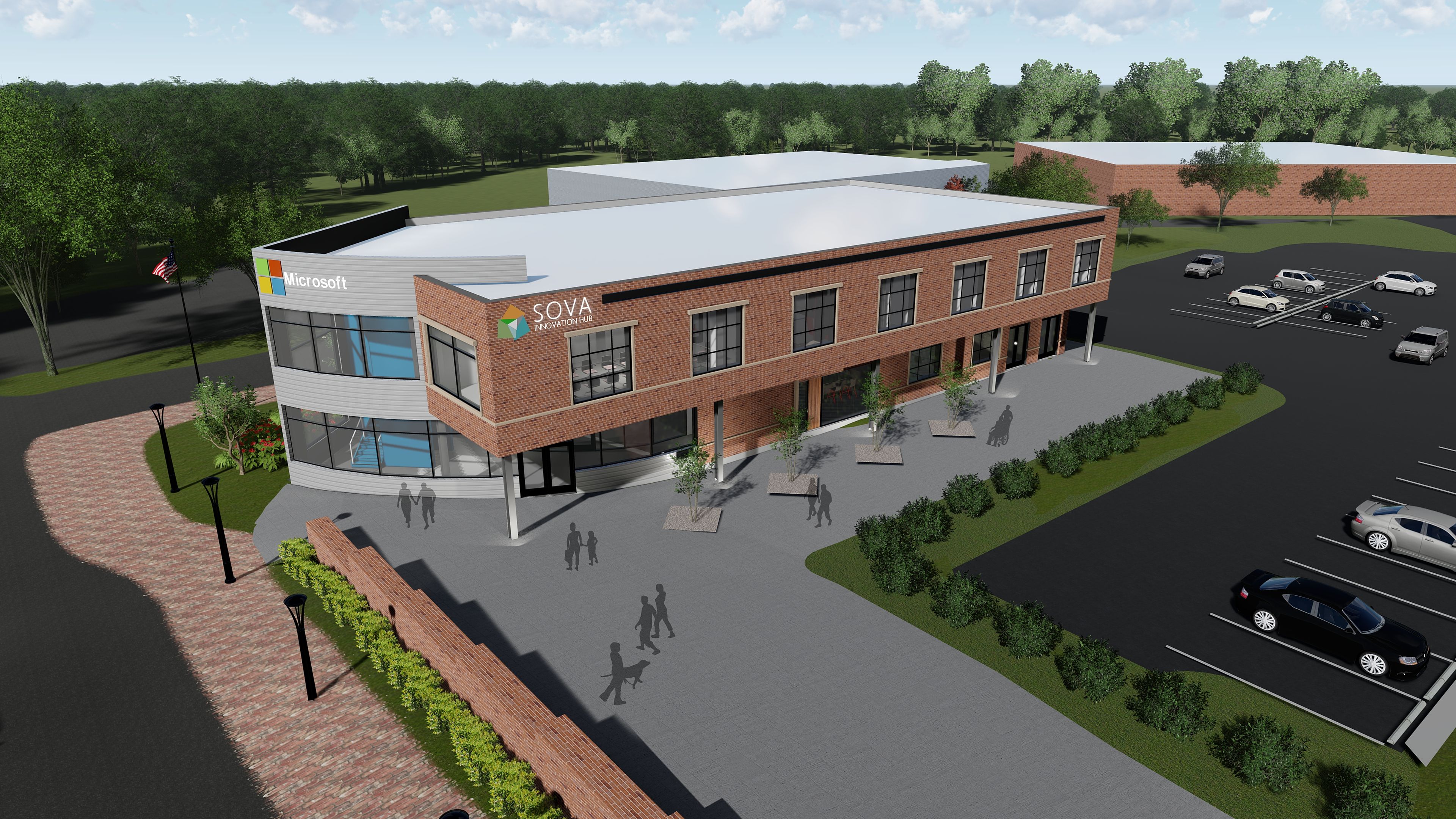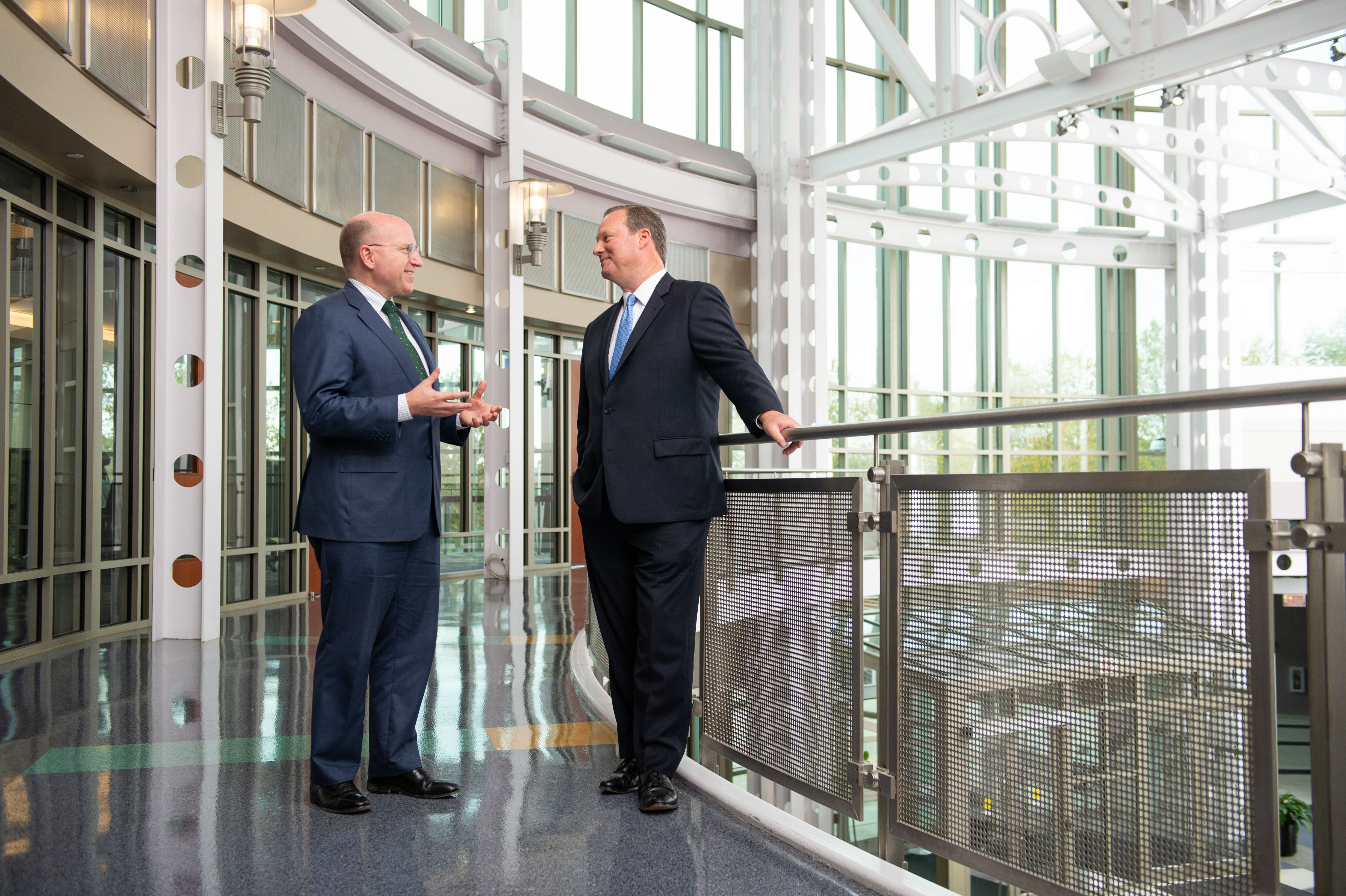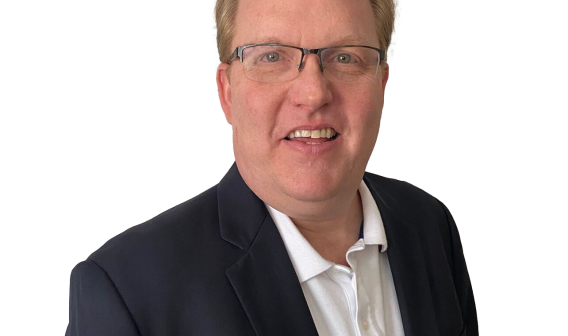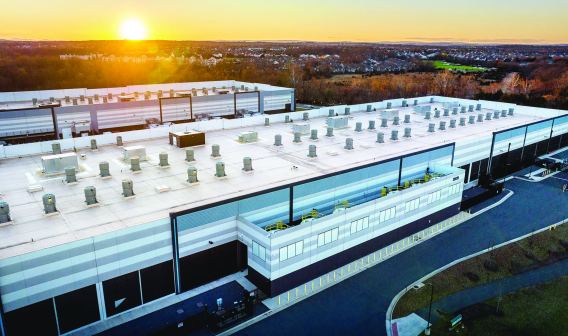Connecting Southern Virginia to the World
A Conversation With Tad Deriso
Tad Deriso is president and CEO of Mid-Atlantic Broadband Communities Corporation (MBC), a South Boston-based 501(c)(4) nonprofit organization that has built an advanced open-access fiber optic network in Southern Virginia. VEDP President and CEO Stephen Moret spoke with Deriso at a recent meeting in Danville about his work creating world-class fiber infrastructure in rural Southern Virginia.
Stephen Moret: Can you tell us what the catalyst was for creation of MBC, and how it all came together?
Tad Deriso: We started this project in 2001. In rural Southern Virginia, there were lots of job closures, lots of traditional industries going away — tobacco, textiles, manufacturing — never coming back again.
A lot of Southern Virginia business and political leaders and the newly formed Tobacco Commission asked, “How do we change the trajectory of our economy? How do we attract technology companies to do some things here?”
What was interesting is they were recruiting AOL, which was looking at a data center expansion from Northern Virginia. The internet was in a rapid growth stage and one of the AOL board members was from Southern Virginia and suggested, “Wouldn’t it be a great economic story to have a massive multi-hundred-million dollar investment in rural Virginia?”
So they came down and said, “Wow, we love your workforce. We love your taxes. We love everything about Southern Virginia. But, man, your telecom infrastructure doesn’t work for us. You have one fiber route in and out and little chance for competition to serve our long-term fiber connectivity needs.”
Some businesses were getting T-1s, which is 1.5 megabits of connectivity, for $8,000 a month. It was very difficult for the region to convince high-tech companies to locate here and help transition our economy. There was really no way to do that because of the infrastructure, lack of broadband, and lack of competition.
Old Dominion Electric Cooperative was my client at the time, and they were laser-focused on how to improve the economy of Southern Virginia by building some kind of fiber network infrastructure. We asked, “How do we get fiber to every single industrial park in Southern Virginia?” The idea was to build this advanced, open-access fiber infrastructure and connect to private-sector networks so they do what they do best, which is provide competitive access at competitive pricing.
The idea was to build this advanced, open-access fiber infrastructure and connect to private-sector networks so they do what they do best, which is provide competitive access at competitive pricing.
Moret: Then you essentially charged them an access fee.
Deriso: Exactly. Whether it’s dark fiber or optical transport, connecting their networks to Southern Virginia was the key. It was an interesting first 30 days on the business case, because we took a quick look and said, “If you get 100% of the business in this region, you can’t even cover the debt service of $70 million of capital. So either some grants need to be involved, or we’ve got to subsidize this thing somehow.”
That’s where the Tobacco Commission came in and said, “Our job is to invest in infrastructure to help revitalize our region. How do we do that?”
We then developed this idea to build a fiber network throughout Southern Virginia, using public dollars to fund an infrastructure that traditionally the private sector would build. There was no business case for the private sector to make, so we said, “Let’s open up access and make it strictly wholesale. We’re not competing in the retail space, we won’t hook up residential homes or serve businesses or schools directly. Let’s form MBC. Let’s make it a not-for-profit organization, and let’s get it done.”
The Tobacco Commission and the U.S. Department of Commerce liked what we put together and funded the first $6 million from the Department of Commerce Economic Development Administration, which led to a match from the Tobacco Commission for $6 million. We had $12 million to start building, and there were additional phases in investment from the Tobacco Commission.
So we were building out Southern Virginia, and then other groups were building out Southwest Virginia with tobacco dollars and federal dollars.
We started in January of 2004 and finished the first phase of construction in early 2006, when we turned the lights on. We started seeing internet service providers, telecom carriers, and cable companies take advantage of this network because they’d never had an opportunity to cost-effectively extend their reach into rural Southern Virginia.
Now you’ve got this amazing ecosystem that’s developed over the years to greatly reduce the cost of access. Southern Virginia is no different than Northern Virginia, Richmond, or Hampton Roads when it comes to retail broadband pricing.
We just wanted a level playing field. Thanks to public-sector grants from the Commission and federal sources, we were able to do that. It’s been amazing to see the impact in the region.
Moret: When we look back over the multi-decade existence of the Tobacco Commission, this would have to be one of its great success stories.
Deriso: I think they’ve said that, and we appreciate it. We take our fiduciary responsibility very seriously. We used their grant dollars to build this infrastructure that’s a critical economic development asset for Southern Virginia and will be here for many decades to come.
We sell optical transport services, dark fiber, and colocation to private-sector telecom providers. Those revenues help support MBC’s operations and fund our ongoing capital projects, economic development support activities, and reinvestments in our communities through sponsorships of high school robotics teams, social programs, and matching funds for our technology partners.
Moret: How much in total has been invested in the infrastructure so far?
Deriso: About $100 million in capital grants, which includes $60 million from the Tobacco Commission, about $40 million from federal sources. We have reinvested an additional $35 million from MBC earnings back into the network infrastructure. It just continues to grow, expand its footprint with more projects, more customers, and more investment in Virginia.
Moret: When you go back to the beginning and the economics you envisioned, the scope and the business model, how close has it been to what you originally expected? What’s different than what you expected?
Deriso: We actually looked back a few years ago at that original business plan I developed as a consultant in Atlanta. What we thought we would price things and what we thought the bandwidth would be were not even close. We anticipated, “We’ll have all this fiber, we can do T-1s, we can do OC3s. So, 100-megabit, 300- and 600-megabit, that’s a lot of bandwidth.”
Some in Microsoft say that [the data center in Southern Virginia] is the largest in their portfolio worldwide, and some in the industry say it's one of the top five largest data center sites in the world. Look at the impact of that. That's happening literally in a town of 500 people. Who would've thought that could happen?
Those expectations were blown away with the arrival of Ethernet services, massive demand from our ISPs and carrier customers, and new electronics that allowed MBC to deliver gigabits cost effectively. Today, our backbone has 1.2 terabits of capacity and can be upgraded to 12 terabits with the addition of a few pieces of electronics. The growth and scale of our industry continues to defy our expectations, and we’re able to help bring those benefits to rural Virginia.
Moret: Obviously, one of the big things you all had in mind was, how do we unlock some economic development opportunities that wouldn’t otherwise happen? It’s been almost 20 years now since the genesis of this. What types of economic benefits or private-sector activity do you think have resulted from this unique model you built?
Deriso: Probably the biggest one is from our local economic developers. They no longer have to answer the question, “Where’s broadband in my industrial park?” And of course, the data center industry was taking notice and worked very closely with VEDP back in the day to help land the Microsoft data center in Southern Virginia. In 2008, Microsoft did a search for a site to build a large East Coast data center hub. From Maine to Florida, they started whittling sites down and ended up with two sites, in Virginia and North Carolina.
We really had to step up to the plate and make this work for Microsoft. During that site selection process, one of their biggest concerns was that the North Carolina site was right on the major internet backbones, closer to the interstate, with a lot of access. The Virginia site wasn’t near those routes. Connecting back to those networks was 50 to 70 miles away.
We were involved in those early meetings, so we raised our hand and said, “We’re this company called MBC and we can help solve this.”
Thanks to VEDP involving us in those early meetings, we were able to play a role in solving the fiber network access problem. We made a bunch of trips to Redmond, Wash., over a six- or seven-month span to get them comfortable with our open-access carrier class network and how they could reach the networks that were important to them.
We were excited to play a small role in securing Microsoft’s investment in Southern Virginia. It’s been incredible to watch their growth from 2010 to today, it’s never stopped. If you look at Microsoft corporately — their cloud product Azure, Xbox, Office 365, machine-to-machine communications, international connectivity — it’s blossomed into massive economic impact in Southern Virginia.
What’s really been amazing is to see how that changed perceptions. What used to be an empty industrial park for 10-plus years all of a sudden has activity and construction. Some in Microsoft say that the data center is the largest in their portfolio worldwide, and some in the industry say it’s one of the top five largest data center sites in the world. Look at the impact of that. That’s happening literally in a town of 500 people. Who would’ve thought that could happen?
Moret: As we look at development across the Commonwealth and our smaller metro areas in rural regions of Virginia, one of the big challenges they face is lack of broadband access. Now we’re excited that the Governor and the General Assembly are taking action to enable other communities across Virginia to be successful, particularly rural communities. What are your thoughts on what the state’s been doing to step up efforts to encourage broadband deployment?
Deriso: It’s been great to see the state take a leadership role in figuring this out. It’s not a complex problem to expand broadband. It’s a dollars and cents problem. So the technology part is easy. It comes down to having fewer people to connect, but it costs the same to put a mile of fiber in Danville as it does in Dulles. It becomes challenging. The state subsidizing that is great.
But what we’re really excited about is that the state asked, “How do we enable the private sector to solve this problem?” Several of our customers are participants in the state’s VATI program to acquire some of those matching subsidy dollars.
The Tobacco Commission still invests in last-mile projects. What we like to see is that everybody’s got a little skin in the game. It’s not a handout, it’s, “Hey, private sector, you put some money in, we’re going to help you get your business case right, and then you’re going to make that last-mile connection happen in these rural areas.” We’re excited to see that and it has led to renewed interest in last-mile investment from ISPs, the telco and cable companies, and the electric cooperatives.
Moret: What have been the biggest challenges MBC has faced over the years?
Deriso: Our biggest challenges have been just trying to expand the network and raising capital as a tax-exempt organization.
We’ve had some projects where we do a lot of cell site connectivity and backhaul, helping to improve cellular connections and wireless broadband in rural areas. To deploy that, we get RFPs from our customers where we can feasibly reach 30% to 40% of those tower sites based on economics that work.
Traditionally, we spend $4 to $5 million a year on capital projects. We’ve been looking at some long-term projects for some of our customers that would require a substantial increase in capital spending. For any capital project, we run it through our model to ensure we have an effective ROI/IRR to ensure we’re able to continue investing for the long term.
Moret: Data centers have become a big focus for Virginia, as you’re well aware. We’re not just a leader in the region or the country. We’re the world leader of data center development. What do you think makes the Commonwealth so attractive for the data center business, and where do you think it could go in the future?
Deriso: The biggest impact Virginia has is Ashburn. If you look back to where the internet started and why everything developed the way it did, there was a lot of connectivity in Northern Virginia. Ashburn continued to grow. Five or maybe eight years ago, the largest pockets of internet connectivity globally were between London and New York. Well, fast-forward to today and the largest places of internet peering and connectivity in the world are between Ashburn and Amsterdam. Suddenly, Virginia is right in the epicenter of the global internet infrastructure because of all the connectivity and investment. There’s really no way around that, which is a great problem to have.
I think Virginia has historically been great for business capital investment. We have a competitive tax policy for data center recruitment and being a business-friendly state certainly helps data center operators direct billions of dollars of investments to the Commonwealth.
Other regions throughout Virginia continue to grow with data center investments. A lot of that’s due to the power infrastructure. Dominion Energy and Appalachian Power have robust power grids and continue to add renewable energy to their generation portfolios, which is important for the data center industry.
We continue to see growth in data center recruitment from Southern and Southwest Virginia, Richmond, and cable landing stations in Virginia Beach; all are connecting to make bigger things happen. That’s been a tremendous advantage for Virginia and will continue to be for the foreseeable future.
Moret: What do you foresee with the new cable landings at Virginia Beach?
Deriso: The three cables that have been announced connect Virginia to Spain, France, and Brazil. We worked with our local partner, Cox Communications, to extend fiber and conduit infrastructure in Virginia Beach that supports those cables. We’ve been excited to see how these global internet giants (Microsoft, Facebook, Telxius, Google) are connecting Virginia with the world.
New York and New Jersey have been the prime landing spot for subsea cables from Europe. When Hurricane Sandy hit five or six years ago, it disrupted a lot of network access for some very large telecom and internet companies. That’s when Microsoft and other tech companies said, “We’ve got to diversify this. It’s not good long-term to have all these cables landing in this geography.” So they spent a lot of time looking and ended up in Virginia Beach because that’s the closest, most efficient connect point to Ashburn geographically.
The subsea cables in Virginia Beach really highlight Virginia’s role as an internet infrastructure powerhouse and will bring substantial marketing and PR benefits to our economic development efforts. Will the average consumer see any cost benefit from these cables? Everyone will experience greater reliability and scalability of cloud services and connectivity, but we’re not going to see consumers receiving gigabit internet service at home for $2 per month.
Moret: When you look back, what accomplishments are you most proud of?
Deriso: It may sound cliché, but what makes me proudest about MBC is the team we’ve built in South Boston. We go to industry meetings nationally and globally and give out our business card and people ask, “South Boston, Va.? Where is that?”
What’s been exciting is to see the growth and dedication of our 20-person team in South Boston. There are not many high-tech companies in South Boston yet, and having an opportunity to work with MBC and make a positive impact on our rural communities is really fulfilling to see.
Suddenly, Virginia is right in the epicenter of the global internet infrastructure because of all the connectivity and investment. There's really no way around that, which is a great problem to have.
Moret: As MBC moves into its third decade from its conceptual founding, what do you see happening in the next 10 years?
Deriso: Just from a core business principle, we continue to expand our fiber network to different parts of Virginia through our partners. Customers will ask us to connect to areas they need to reach, and we work with them to figure out how to make that happen.
We’re all about creating partnerships and leveraging technology to deliver positive impacts. The SOVA Innovation Hub is our latest initiative with Microsoft. The new 15,000-square-foot building in downtown South Boston will serve as our new corporate headquarters and the Microsoft collaboration will drive more investments to our local and regional partners to support digital skills and computer science training development. We see the co-working space in the Hub being able to drive new startup and entrepreneurial initiatives and will be exciting to watch new opportunities develop from small-town Virginia.
Moret: Tad, congratulations on what you’ve all accomplished in the last nearly two decades. Thank you for the leadership you’ve provided, and thank you so much for the impact MBC is having on Southern Virginia and the Commonwealth as a whole.
Deriso: Thank you so much, Stephen. I appreciate it.
For the full interview, visit www.vedp.org/Podcasts
